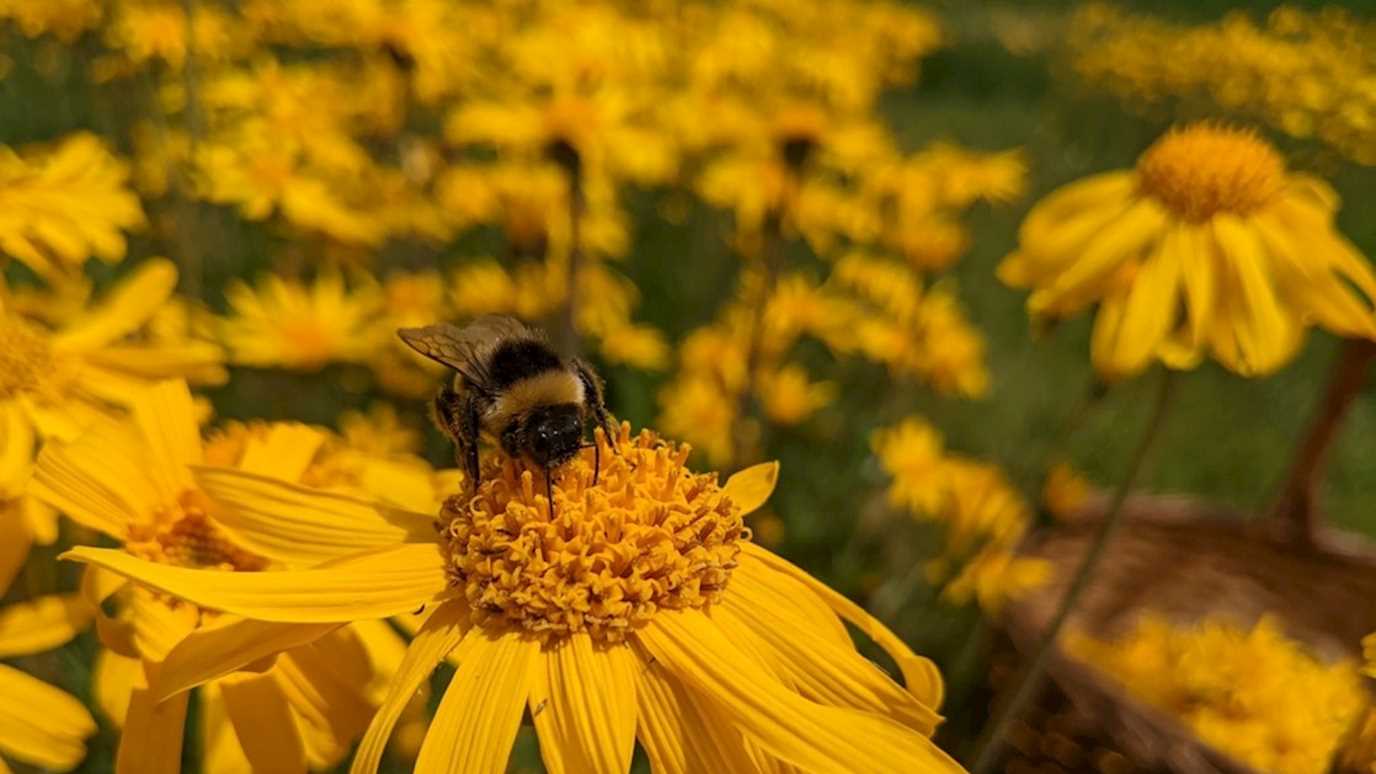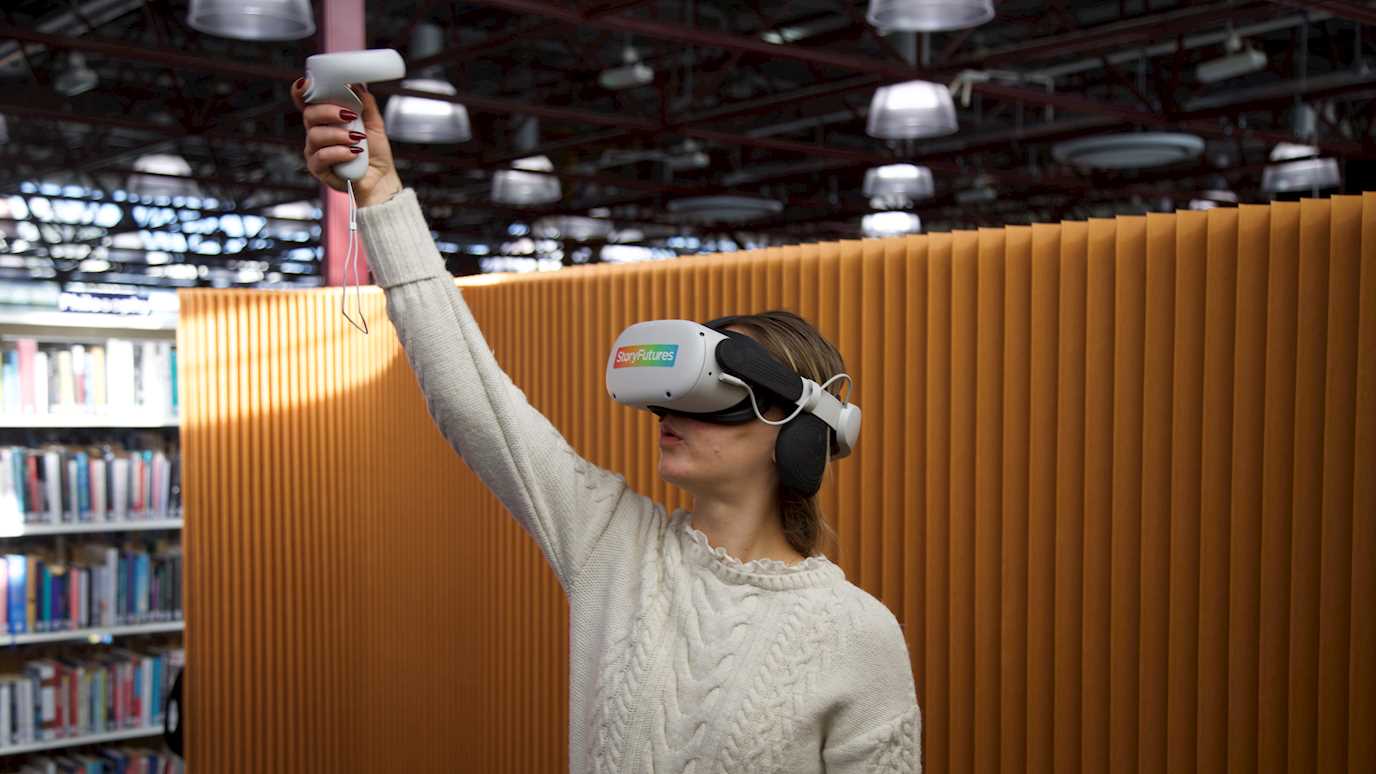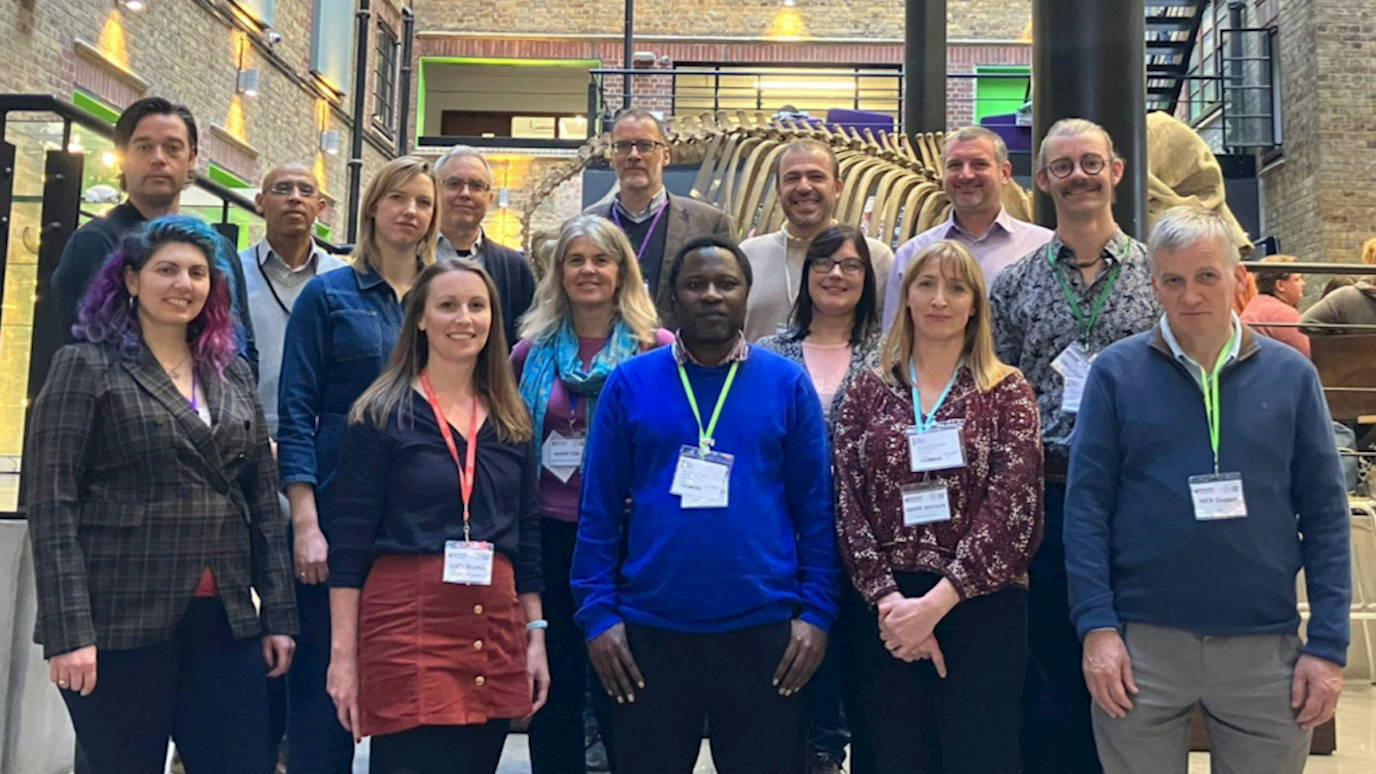By Fabrizia Ratto

Bumblebee on Arnica montana (Italy, @ photo credits ARMO1191)
A global systematic review and meta-analysis lead by academics at Royal Holloway will shed light on the importance of pollinators to medicinal plants and the provision of this key ecosystem service.
Pollinators are intricately related to human well-being for their influence in securing quantity and diversity of food, maintaining wild plant population and supporting cultural and aesthetic values. The ongoing decline of pollinators is therefore likely to have a significant adverse impact on these numerous benefits.
It is estimated that a large proportion of the world’s population is relying on herbal medicine for at least some part of their primary healthcare, and the use of medicinal plants is growing rapidly in both lower and higher income countries. Because medicinal plants are almost entirely wild harvested about 21% worldwide are at risk of extinction, yet, despite their importance, very little is known about the pollinators of medicinal plants and there is no comprehensive knowledge of how heavily medicinal plants depend on their pollinators for their long-term survival.
In collaboration with our partners at Kew Garden, Binghamton University (New York) and colleagues in the department of Biological Sciences here at RHUL, we are addressing this knowledge gap but conducting a review of the existing literature to collate information on the pollinator groups involved in the pollination of medicinal plants worldwide. By extracting and analysing data from existing studies, we will quantify the contribution of pollinators to the reproduction of medicinal plants and explore if the dependence of medicinal plants on their pollinators varies across geographic regions, climatic regions, pollinator species and other factors. The results of this study will highlight the importance of pollinators on securing the long-term survival of medicinal plants and the potential threat of pollinators decline on their long-term survival and the supply of medicinal plants to future generations.
























